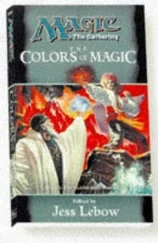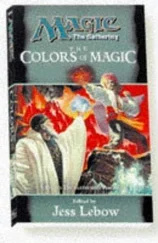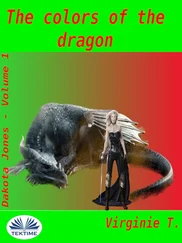Before she left on that first day, Matryona pointed to some freshly hatched eggs. “I’ll take these? No?”
“Yes,” I said hoarsely.
Then I returned to the mansion, checking my clothes for chicken scratch, and rejoined the parlor company. “I’ve digressed. Where were we?” Anna looked up from her needlework, then dipped her head down like a pupil who did not know the answer to the teacher’s question and was afraid to be called upon.
* * *
In the chicken coop. Then in an old barn, where Matryona deadbolted a rickety door. Then in a woodshed, where she lifted her skirts, and the decrepit linen, the hemp rope–fastened wrappings she wore on her legs, were the color of dead skin. Afterward: to putter back to the mansion, dump my fur coat on the floor, leave footprints of snow all over. A feeling of shame, as I checked myself in the mirrors: God help me .
Was it to this look that Anna had started responding? Suddenly it had become so easy to find her alone: by the fireplace, in the renovated nursery, at a table covered with cups and saucers and raspberry pastries. She watched me break a pastry and abandon it. I asked, “Why are you so unhappy?” and saw confusion on her face, as if she were giving her soul an emergency inspection.
“I am not… I’m happy. Do I not look it?”
“Do you believe that people can explain their true selves to each other through words?”
“Yes, certainly, I do.”
“And yet you can’t manage to ask me the questions that have been on your mind since you first saw me. Isn’t it so?”
It was so easy to discombobulate her!
Meanwhile: In a cold bathhouse, where it was too dark to see. In a fisherman’s shack. In the workshop, where Matryona fingered a newly finished crib that smelled strongly of flaxseed oil. In the creamery, next to trays of milk, where Savva lost a milk tooth eating cream off a skimmer. I never touched her. We rarely spoke. She is neither a wife nor a widow, our lackey told me when I asked. Her husband had been drafted into soldiery, which those days meant—for life. God knows what she lives on . Tough working her land lot by herself, and her boy’s too small yet.
I pocketed tea cakes for Savva when no one was looking.
* * *
Anna said, “Very well, I’ll ask.” This time, she had sought me out. I sat at a table, playing solitaire, she insisted on standing. She said, “What do you and my husband hold against one another?”
I made her wait for my answer. “Our differences. Or similarities. Maybe we each dislike our own reflection in the other.”
“You are not being earnest.”
“You are not asking the right question.”
“Are you seeking my company because you want to annoy your brother?”
What splendid riposte! There were a few embers smoldering behind that demure facade. Yet I rewarded her only by another deck-shuffling pause and then by a very loaded, “ No .”
“As in—”
“I am not seeking your company.”
“I’m sorry I was mistaken… It must be one of your eccentricities.” She turned to leave—too abruptly. She was discomposed, and it was the perfect moment for me to spring from the chair and plead, “Anna! I’m sorry. Yes. Yes I was. I’m not eccentric. I’m lonely . Very lonely, that’s all.” An utter truth, backed up by that genuine God help me look in my eyes.
She saw it of course. “Well, I’m lonely too. In a house full of in-laws—”
“I know I have a reputation . But it is not that of a seducer.” (She almost, but not quite, winced.) “Your husband has nothing to fear from me… Friends?”
This time Anna made me wait. At long last she conceded, “Friends. On a condition that you stop talking to me as if I am your brother’s possession.”
“Why, I never intended—” and so forth.
* * *
In the barn again, where I was becoming more demanding. Then I saw how our own domestics chased Matryona from the yard, saying, Be gone with you! Scavenging here! Whoring around!
When I asked what happened, the lackey said that Matryona was not even ours. Not our serf . There went my semiserious plan of easing her lot by making a house servant out of her.
Matryona never touched me either. Except once: I was performing my routine while watching her—and was not succeeding, it just would not happen; so she said, Let me, and then pulled the kerchief off her head—a newer, whiter thing she wore, with a stitchwork of little red roosters along the edge—and she took me into her hand through this kerchief, explaining, My hands’re rough and young master’s skin’s tender. I leaned back on my elbows and wanted to close my eyes but those little red roosters—this misused Sunday-best kerchief—I could not tear my mind from it, it anguished me, it jumbled me—
“You pity me, don’t you?” I said.
She stopped for a moment. Her braid rolled over her shoulder and fell on my chest. She tossed it back. Then resumed.
“I am not a ‘young master.’ I may well be older than you.” I could not bear these pangs of sadness and shame and injustice, perverted together, and so I cried, “Stop!” because I did not want her to stop, and then drew her in and held her by the waist, and straightened her skirt, and then buried my face in it and begged, “Don’t come here again. Please. Don’t come for me anymore.”
Later, Father categorically refused to buy Matryona and Savva from whoever owned them. “When you come into money, you can blow it whichever way you want!” I had no income other than the allowance he gave me. The empire rarely paid my nominal Leib Guard salary. As a landed nobleman, I was expected to have no need for it, and if I had the need, to be too proud to ask.
I came across Anna right after that conversation. “What happened?” she asked. My face must have been a portrait of ire.
On impulse, I said, “Take a sleigh ride with me. Please?”
And here we were, propelled by that same spirited mare (a choice of mine), over an end-of-February landscape, under the crisp sun. Once or twice at sharp turns Anna shrieked and grabbed my arm, then laughed—excitedly, I thought—and it cheered me up, and I thought that this was when I’d ask her about my brother. I needed, I had to know, now more than ever.
On the outskirts of a village, some kids were building a snow fortress and I turned toward it. “A cavalry charge!” I roared, and Anna protested, God, no!, and I reigned in the mare to a halt and jumped out of the sleigh. “An infantry charge! Preobrazhensky grenadiers—attack!” I stormed on, and the kids responded with a volley of snowballs. I retaliated with snow grenades and rammed the snow wall, tumbling to the ground on the other side and being bombarded by the fortress’s defenders till snow bursts covered me head to toe; yet I lay sprawled and laughed like a madman until Anna’s face appeared above me. “Look at you—a snowman,” she said, smiling so brightly. And I said, “Then tell me something. Be honest with a snowman. Is your husband cold when he performs the procreative act?”
At first she just raised her brow, prompting me to repeat it, but by the time I did, her face changed, a grave concern upon it, and her gaze turned inward. I sat up. “What’s wrong?”—“I am unwell,” she said. “Take me back.”
I was terrified. She saw it and, once back in the sleigh, she offered an explanation, “It’s my pregnancy.”
“You are— pregnant ?!”
“You didn’t know?”
“You didn’t tell me!”
“I—guess I thought you knew. Everyone else does.”
Читать дальше












